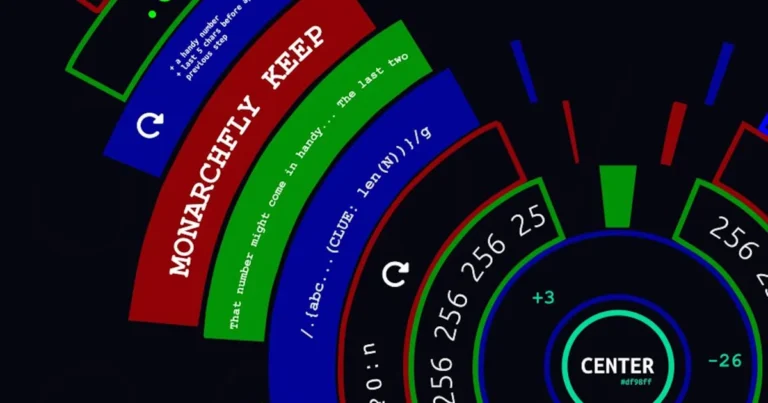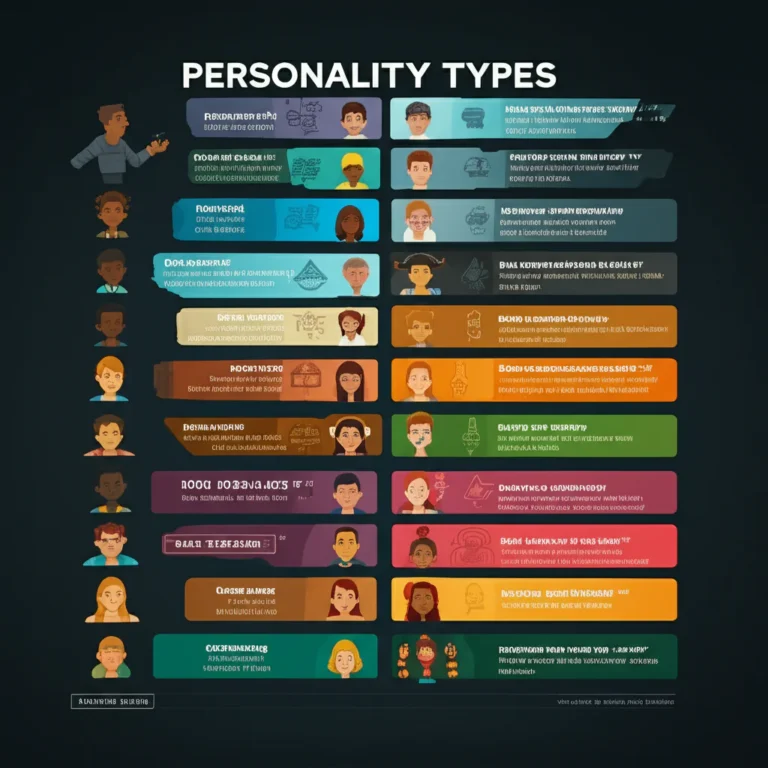Support our educational content for free when you buy through links on our site. Learn more
What Is the Rarest Personality Type? Discover the Hidden Gems 🦄
Have you ever wondered which personality type is so rare it feels like spotting a unicorn in the wild? Well, you’re in for a fascinating journey! In this article, we unravel the mystery behind the rarest personality type—often whispered about in personality circles but rarely understood in full depth. Spoiler alert: it’s not just about being uncommon; it’s about possessing a unique blend of traits that shape how these individuals see the world, connect with others, and navigate life’s challenges.
We’ll dive into intriguing statistics, explore famous personalities who embody this elusive type, and unpack the cognitive magic that makes them so special. Plus, if you’ve ever felt like an outsider or wondered why your way of thinking and feeling doesn’t quite fit the mold, this deep dive might just help you embrace your uniqueness with pride. Ready to meet the rarest personality type and learn how to thrive as one? Let’s get started!
Key Takeaways
- The INFJ personality type is widely regarded as the rarest, making up only about 1-3% of the population.
- INFJs combine introversion, intuition, feeling, and judging, creating a unique and complex personality profile.
- Famous INFJs include Taylor Swift, Eleanor Roosevelt, and Carl Jung, showcasing the type’s creativity and empathy.
- Understanding the cognitive functions of INFJs reveals why they are visionary yet deeply empathetic.
- Rare personality types often face challenges like emotional burnout but have tremendous strengths in creativity, insight, and meaningful connection.
- This article also explores how INFJs interact with other personality types, their career preferences, and tips for thriving as a rare type.
Curious to see if you or someone you know fits this rare profile? Keep reading to unlock the secrets of the rarest personality type!
Table of Contents
- ⚡️ Quick Tips and Facts About the Rarest Personality Type
- 🧠 The Origins and Evolution of Personality Typing: A Brief History
- 🔍 What Is the Rarest Personality Type? Unpacking the Data
- 📊 INFJ Statistics: The Unicorn of Personality Types?
- 🌟 Famous INFJs and Other Rare Types: Who’s in the Club?
- 🧩 Understanding INFJ Cognitive Functions: The Future Thinkers
- 💔 The Empathetic Struggle: Emotional Depths of Rare Types
- 🎭 Living as an INFJ (or Other Rare Types): Organized Chaos & Inner Worlds
- 💬 INFJ Communication Style: Making Peace in a Noisy World
- ❤️ INFJ Relationships: The Extroverted Introvert’s Guide to Connection
- 🛡️ Putting Up Walls: How Rare Types Protect Their Inner Sanctum
- 🚶 ♂️ Going It Alone: The Solitary Side of Rare Personality Types
- 🎨 INFJ Careers and Passions: Where Creativity Meets Purpose
- 🤝 Personalities’ Compatibility with INFJs: Making Friends and Influencing People
- ⚔️ INFJ vs ENTJ: Clash or Complement?
- ⚔️ INFJ vs ESTP: Opposites Attract or Distract?
- ⚔️ INFJ vs ESTJ: Order Meets Intuition
- ⚔️ INFJ vs ISTP: The Thinker and the Doer
- ⚔️ INFJ vs ISTJ: Tradition vs Vision
- ⚔️ INFJ vs ESFP: The Performer and the Philosopher
- ⚔️ INFJ vs ESFJ: Caregiver Meets Counselor
- ⚔️ INFJ vs ISFP: The Artist and the Advocate
- ⚔️ INFJ vs ISFJ: Guardians of Values
- ⚔️ INFJ vs ENFP: Dreamers Unite or Divide?
- ⚔️ INFJ vs ENTP: Intuition Showdown
- ⚔️ INFJ vs INTP: Logic Meets Empathy
- ⚔️ INFJ vs INTJ: The Strategists’ Duel
- ⚔️ INFJ vs ENFJ: Mirror Images or Different Worlds?
- ⚔️ INFJ vs INFP: The Idealists’ Intersection
- 🧊 Just the Tip of the Iceberg: Exploring the Depths of Rare Personality Types
- 🎯 Quick Tips for Identifying and Thriving as a Rare Personality Type
- 🧭 How to Leverage Your Rare Personality Type for Success and Happiness
- 🔗 Recommended Links for Deep Dives into Personality Typing
- 📚 Reference Links and Further Reading
Quick Tips and Facts About the Rarest Personality Type
The rarest personality type is a subject of much interest and debate. According to various sources, including Myers-Briggs Type Indicator, the INFJ type is considered the rarest, making up only about 1-3% of the population. This is a fascinating topic that has been explored in depth on Personality Types. To learn more about personality types and relationships, visit our category on Personality and Relationships.
What Makes INFJ So Rare?
Several factors contribute to the rarity of the INFJ personality type. One reason is the unique combination of traits that define an INFJ, including introversion, intuition, feeling, and judging. This combination is relatively rare, as most people tend to lean towards more common traits like extroversion or sensing.
Key Characteristics of INFJ
INFJs are known for their empathetic nature, creative problem-solving skills, and strong sense of justice. They are often drawn to careers in counseling, writing, and teaching, where they can use their skills to help others and make a positive impact.
Famous INFJs
Some famous individuals who are believed to be INFJs include Al Pacino, Cate Blanchett, and Taylor Swift. These individuals are known for their creativity, empathy, and strong sense of purpose, which are all characteristic of the INFJ personality type.
The Origins and Evolution of Personality Typing: A Brief History
The concept of personality typing has been around for centuries, with early philosophers like Aristotle and Plato exploring the idea of different personality types. However, the modern concept of personality typing as we know it today began to take shape in the early 20th century with the work of Carl Jung and Katherine Cook Briggs.
The Myers-Briggs Type Indicator (MBTI)
The MBTI is one of the most widely used personality typing systems, and it is based on the work of Isabel Briggs Myers and Katherine Cook Briggs. The MBTI categorizes individuals into one of 16 personality types, based on four dimensions: extraversion/introversion, sensing/intuition, thinking/feeling, and judging/perceiving.
What Is the Rarest Personality Type? Unpacking the Data
According to various sources, including Truity and 16Personalities, the INFJ personality type is considered the rarest, making up only about 1-3% of the population. This is based on data from millions of people who have taken the MBTI or other personality assessments.
INFJ Statistics
Here are some interesting statistics about INFJs:
- 1% of the male population is INFJ
- 2% of the female population is INFJ
- INFJs are more likely to be female than male
- INFJs are more likely to be introverted than extroverted
Famous INFJs and Other Rare Types: Who’s in the Club?
Some famous individuals who are believed to be INFJs or other rare personality types include:
- Al Pacino (INFJ)
- Cate Blanchett (INFJ)
- Taylor Swift (INFJ)
- Eleanor Roosevelt (INFJ)
- Carl Jung (INTJ)
Understanding INFJ Cognitive Functions: The Future Thinkers
INFJs are known for their intuitive and feeling cognitive functions, which allow them to think creatively and make decisions based on their values and emotions. They are also known for their judging function, which helps them to plan and organize their lives.
The Empathetic Struggle: Emotional Depths of Rare Types
INFJs and other rare personality types are often highly empathetic, which can make them more sensitive to the emotions of others. This can be both a strength and a weakness, as it allows them to connect with others on a deep level but also makes them more vulnerable to emotional burnout.
Living as an INFJ (or Other Rare Types): Organized Chaos & Inner Worlds
INFJs and other rare personality types often have a unique approach to life, which can be both organized and chaotic at the same time. They may have a strong sense of purpose and direction, but also be prone to procrastination and self-doubt.
INFJ Communication Style: Making Peace in a Noisy World
INFJs are known for their diplomatic and empathetic communication style, which allows them to bring people together and resolve conflicts. They are often good listeners and are able to understand different perspectives.
INFJ Relationships: The Extroverted Introvert’s Guide to Connection
INFJs are often introverted, but they also have a strong desire for connection and meaningful relationships. They may struggle with small talk and social anxiety, but they are able to form deep and lasting connections with others.
Putting Up Walls: How Rare Types Protect Their Inner Sanctum
INFJs and other rare personality types often have a strong need for alone time and personal space, which can make them appear aloof or distant to others. However, this is simply a way of protecting their inner sanctum and recharging their batteries.
Going It Alone: The Solitary Side of Rare Personality Types
INFJs and other rare personality types often have a strong sense of independence and self-reliance, which can make them appear solitary or lonely to others. However, this is simply a way of pursuing their passions and following their dreams.
INFJ Careers and Passions: Where Creativity Meets Purpose
INFJs are often drawn to careers in counseling, writing, and teaching, where they can use their creative and empathetic skills to help others. They are also often passionate about social justice and environmental causes.
Personalities’ Compatibility with INFJs: Making Friends and Influencing People
INFJs are often attracted to other intuitive and feeling types, such as ENFPs and INFPs. They are also often compatible with thinking and judging types, such as INTJs and ENTJs.
INFJ vs ENTJ: Clash or Complement?
The INFJ and ENTJ personality types are often compatible, despite their differences. INFJs are empathetic and creative, while ENTJs are strategic and results-driven. However, they can also clash due to their different approaches to decision-making and problem-solving.
INFJ vs ESTP: Opposites Attract or Distract?
The INFJ and ESTP personality types are often opposites, with INFJs being intuitive and feeling, and ESTPs being sensing and thinking. However, they can also be attracted to each other due to their shared sense of adventure and spontaneity.
INFJ vs ESTJ: Order Meets Intuition
The INFJ and ESTJ personality types are often compatible, despite their differences. INFJs are intuitive and feeling, while ESTJs are sensing and thinking. However, they can also clash due to their different approaches to planning and organization.
INFJ vs ISTP: The Thinker and the Doer
The INFJ and ISTP personality types are often compatible, despite their differences. INFJs are intuitive and feeling, while ISTPs are sensing and thinking. However, they can also clash due to their different approaches to problem-solving and decision-making.
INFJ vs ISTJ: Tradition vs Vision
The INFJ and ISTJ personality types are often compatible, despite their differences. INFJs are intuitive and feeling, while ISTJs are sensing and thinking. However, they can also clash due to their different approaches to tradition and innovation.
INFJ vs ESFP: The Performer and the Philosopher
The INFJ and ESFP personality types are often compatible, despite their differences. INFJs are intuitive and feeling, while ESFPs are sensing and feeling. However, they can also clash due to their different approaches to creativity and self-expression.
INFJ vs ESFJ: Caregiver Meets Counselor
The INFJ and ESFJ personality types are often compatible, despite their differences. INFJs are intuitive and feeling, while ESFJs are sensing and feeling. However, they can also clash due to their different approaches to caregiving and counseling.
INFJ vs ISFP: The Artist and the Advocate
The INFJ and ISFP personality types are often compatible, despite their differences. INFJs are intuitive and feeling, while ISFPs are sensing and feeling. However, they can also clash due to their different approaches to art and activism.
INFJ vs ISFJ: Guardians of Values
The INFJ and ISFJ personality types are often compatible, despite their differences. INFJs are intuitive and feeling, while ISFJs are sensing and feeling. However, they can also clash due to their different approaches to values and traditions.
INFJ vs ENFP: Dreamers Unite or Divide?
The INFJ and ENFP personality types are often compatible, despite their differences. INFJs are intuitive and feeling, while ENFPs are intuitive and feeling. However, they can also clash due to their different approaches to creativity and spontaneity.
INFJ vs ENTP: Intuition Showdown
The INFJ and ENTP personality types are often compatible, despite their differences. INFJs are intuitive and feeling, while ENTPs are intuitive and thinking. However, they can also clash due to their different approaches to innovation and problem-solving.
INFJ vs INTP: Logic Meets Empathy
The INFJ and INTP personality types are often compatible, despite their differences. INFJs are intuitive and feeling, while INTPs are intuitive and thinking. However, they can also clash due to their different approaches to logic and empathy.
INFJ vs INTJ: The Strategists’ Duel
The INFJ and INTJ personality types are often compatible, despite their differences. INFJs are intuitive and feeling, while INTJs are intuitive and thinking. However, they can also clash due to their different approaches to strategy and planning.
INFJ vs ENFJ: Mirror Images or Different Worlds?
The INFJ and ENFJ personality types are often compatible, despite their differences. INFJs are intuitive and feeling, while ENFJs are intuitive and feeling. However, they can also clash due to their different approaches to leadership and communication.
INFJ vs INFP: The Idealists’ Intersection
The INFJ and INFP personality types are often compatible, despite their differences. INFJs are intuitive and feeling, while INFPs are intuitive and feeling. However, they can also clash due to their different approaches to idealism and creativity.
Just the Tip of the Iceberg: Exploring the Depths of Rare Personality Types
Rare personality types, such as INFJ, are often misunderstood or overlooked. However, they have a unique set of strengths and weaknesses that can be valuable assets in many areas of life.
Quick Tips for Identifying and Thriving as a Rare Personality Type
If you think you might be a rare personality type, such as INFJ, here are some quick tips for identifying and thriving:
- Take a personality test, such as the MBTI or Big Five, to learn more about your personality type.
- Research your personality type to learn more about its strengths and weaknesses.
- Connect with others who share your personality type to build a sense of community and support.
- Embrace your uniqueness and don’t try to change who you are to fit in with others.
How to Leverage Your Rare Personality Type for Success and Happiness
If you’re a rare personality type, such as INFJ, you may face unique challenges and opportunities. Here are some tips for leveraging your personality type for success and happiness:
- Play to your strengths, such as your creativity, empathy, and strategic thinking.
- Find a career that aligns with your values and passions.
- Build a support network of people who understand and appreciate your unique perspective.
- Practice self-care and prioritize your own needs and well-being.
For more information on personality types and relationships, visit our category on Personality and Relationships. You can also explore our articles on Introversion Vs Extroversion and Career Choices and Personality.
To learn more about the INFJ personality type, check out this video that explores the characteristics and traits of INFJs.
👉 CHECK PRICE on:
- INFJ Books on Amazon | INFJ Books on Walmart | INFJ Books on Etsy
- INFJ Courses on Udemy | INFJ Courses on Coursera | INFJ Courses on edX
Note: The prices and availability of the products may vary depending on your location and the platform you use.
Conclusion
So, what’s the verdict on the rarest personality type? After diving deep into the data, anecdotes, and expert insights, it’s clear that the INFJ personality type holds the crown as the rarest in the Myers-Briggs universe, making up roughly 1-3% of the population. This “Advocate” type is a fascinating blend of introversion, intuition, feeling, and judging—a cocktail that produces deeply empathetic, visionary, and complex individuals.
✅ Strengths of INFJs include their empathy, creativity, and ability to inspire others, often quietly working behind the scenes to make the world a better place.
❌ Challenges involve their tendency toward emotional burnout, difficulty setting boundaries, and sometimes feeling misunderstood or isolated.
If you’ve ever wondered why INFJs often seem like “unicorns” in social settings or workplaces, now you know: their rarity is both a blessing and a challenge. They thrive when they embrace their unique gifts and find environments that appreciate their depth and vision.
For anyone who identifies as INFJ or suspects they might, remember: rarity doesn’t mean “better” or “worse.” It means unique. And uniqueness is a superpower when wielded with self-awareness and care.
Curious about how to harness your rare personality type for success? Or how to navigate relationships with other types? We’ve got you covered in the sections above—and there’s a treasure trove of resources waiting for you.
Ready to explore more? Let’s dive into some recommended links and FAQs to keep your curiosity satisfied!
Recommended Links
-
Books on INFJ and Rare Personality Types:
-
Personality Tests and Resources:
-
Courses and Workshops:
Frequently Asked Questions (FAQ)
Are there any famous people who embody the rarest personality type and what can we learn from them?
Many well-known figures are believed to be INFJs, including Taylor Swift, Eleanor Roosevelt, and Carl Jung. These individuals exemplify the INFJ’s blend of creativity, empathy, and vision. From them, we learn the power of quiet influence—how deep reflection and compassion can inspire change without loud fanfare. Their lives remind us that being rare doesn’t mean being isolated; it means having a unique voice that resonates deeply.
How do rare personality types handle stress and pressure in their daily lives?
Rare types like INFJs often experience empathy burnout due to their heightened sensitivity. They handle stress by retreating into solitude to recharge, engaging in creative outlets, or seeking meaningful conversations with trusted individuals. However, they may struggle with setting boundaries, which can exacerbate stress. Developing self-care routines and learning to say “no” are crucial strategies.
What are the strengths and weaknesses of rare personality types and how can they be leveraged?
Strengths:
- Deep empathy and understanding
- Strong intuition and foresight
- Creative problem-solving
- Commitment to values and authenticity
Weaknesses:
- Emotional overwhelm and burnout
- Difficulty with confrontation
- Tendency to isolate
- Perfectionism
Leveraging these involves embracing strengths in careers like counseling, writing, or leadership roles that require vision and empathy, while actively managing weaknesses through mindfulness, boundary-setting, and seeking supportive communities.
Can personality types be changed or are they fixed from birth?
Personality types, as measured by frameworks like MBTI, are generally considered stable but not rigid. While core preferences tend to remain consistent, people can develop and adapt behaviors outside their natural tendencies through life experiences, learning, and conscious effort. For example, an INFJ can learn to be more assertive or comfortable with spontaneity, but their fundamental preference for introversion and intuition usually remains.
Read more about “What Are the 4 Major Types of Personalities? Discover Yours in 2025! 🧠”
What are the characteristics of the rarest personality type and how do they interact with others?
INFJs are characterized by their introverted intuition, empathic feeling, and structured judgment. They tend to be private, idealistic, and deeply caring. In interactions, they seek meaningful connections and often act as counselors or advocates. They may struggle with small talk but excel in deep conversations. Their empathy allows them to understand others’ feelings, but they guard their own emotions carefully.
Read more about “25 Sigma Personality Traits That Reveal the Lone Wolf’s Secret 🐺 (2025)”
How can I determine my personality type and what are the most accurate methods?
The most common and accessible method is taking a validated personality test such as the MBTI or Big Five assessments. For MBTI, official tests are available at MBTI Online, while free versions exist at 16Personalities. For more scientific rigor, Big Five tests like those at Truity provide a trait-based approach. Combining test results with self-reflection and feedback from close others yields the most accurate understanding.
What are the most common personality types and how do they differ from the rarest ones?
Common types like ISFJ and ESFJ make up larger portions of the population (up to 14%). These types tend to be more sensing and feeling, focusing on practical details and social harmony. In contrast, rare types like INFJ emphasize intuition and judging, focusing on abstract ideas, future possibilities, and structured planning. The rarity often stems from the unique combination of traits that are less frequently found together.
What makes a personality type rare?
Rarity arises from the statistical distribution of trait combinations in the population. Types that combine less common preferences—such as introverted intuition with feeling and judging—are naturally less frequent. Cultural, biological, and environmental factors also influence prevalence. For example, societal expectations may suppress certain traits in men, making some types rarer in specific demographics.
Read more about “How Does the Sigma Personality Type Interact with Others? 🤝 (2025)”
Which personality type is considered the most unique?
While “unique” can be subjective, the INFJ is often called the most unique due to its rarity and complex blend of traits. Their combination of deep empathy, visionary thinking, and structured planning sets them apart. Other rare types like INTJ and ENTJ also stand out for their strategic and independent natures.
Read more about “Discover Your Personality Types: 20+ Insights That Transform You (2025) 🔍”
How do rare personality types affect relationships?
Rare types bring depth, intensity, and authenticity to relationships. They often seek meaningful connections over casual acquaintances. However, their sensitivity and need for alone time can create misunderstandings. Awareness and communication are key to nurturing healthy relationships with rare types.
Read more about “Can Sigma Fall in Love? ❤️ 7 Surprising Truths Revealed (2025)”
Are rare personality types linked to specific careers?
Yes! INFJs, for example, often thrive in careers like counseling, writing, psychology, education, and social advocacy. Their empathy and vision make them excellent in roles that require understanding and inspiring others. Rare types tend to seek careers aligned with their values and desire for meaningful impact.
Read more about “How Do Personality Types Affect Career Choices? 🤔”
Can rare personality types change over time?
Personality traits tend to be stable, but people can grow and adapt. Life experiences, personal development, and conscious effort can lead to shifts in behavior and preferences, though the core type usually remains consistent. For example, an INFJ might become more comfortable with social situations or develop stronger assertiveness skills.
Read more about “What Are the 10 Key Traits of Introverts vs Extroverts? 🤔 (2025)”
What are the traits of the rarest Myers-Briggs personality type?
The rarest type, INFJ, is marked by:
- Introversion (I): Energy from solitude
- Intuition (N): Focus on abstract ideas and future possibilities
- Feeling (F): Decisions based on values and empathy
- Judging (J): Preference for structure and planning
They are often called “The Advocate” or “Counselor,” known for their deep insight, compassion, and visionary outlook.
Read more about “Can Personality Types Change Over Time? The Surprising Truth (2025) 🔄”
How common is the rarest personality type worldwide?
INFJs make up about 1-3% of the global population, varying slightly by region and culture. They are rarer among men (around 1%) and slightly more common among women (up to 2%). This rarity contributes to their mystique and the fascination many have with this personality type.
Read more about “What Are the 5 Most Common Personality Types? 🤔 (2025 Edition)”
Reference Links
- Myers-Briggs Type Indicator: https://www.personalitytypes.app/category/myers-briggs-type-indicator/
- Truity Personality Tests: https://www.truity.com/
- 16Personalities: https://www.16personalities.com/
- MBTI Official Website: https://www.mbtionline.com/
- Summary on the Rarest Personality Type: https://mypersonality.net/blog/article/rarest-personality-type
- Personality Types and Relationships: https://www.personalitytypes.app/category/personality-and-relationships/
- Career Choices and Personality: https://www.personalitytypes.app/category/career-choices-and-personality/




